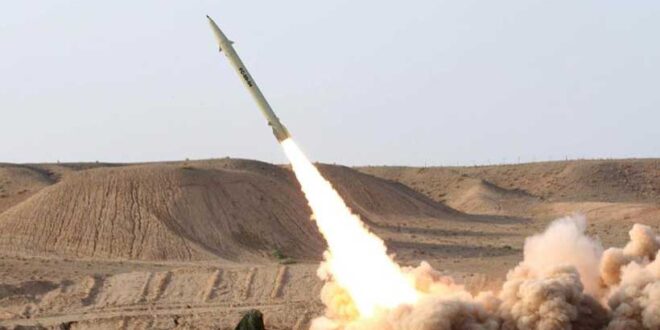This was evident in the recent missile strikes on Israel originating from Iran and the subsequent reciprocal actions involved a historical enmity with-hostilities political story. Thus, on October 1, 2024, Iran delivered a serious missile strike on Israel, which Tehran called a legitimate response to the assassination of the main Hezbollah leaders, including Hassan Nasrallah. Normally this act has raised the political analysis whether Iran was right of attacking or whether Israel was provocative and deserved a very tough response from Iran.
The Islamic Revolutionary Guard Corps (IRGC) sought to justify the missile strikes by what they refer to as the ‘martyrdom’ in Lebanon. In their statement, they stressed that these attacks directly affect the heart of the occupied territories,” repeating a narrative about Iran as the protector of its allies in the region against Israel’s aggression. The IRGC statement is part of that strategy, which seeks to reclaim Iranian influence in the region and re-establish its deterrent power after years of Israeli aggression.
Islamic Republic of Iran has in the past maintained relations with such groups as Hezbollah and Hamas of its ‘axis of resistance’ against Israel. Since the revolution of 1979, this network has played a vital role in structuring Iran’s strategic activities and given a mean to Tehran to establish influence in extra-regional matters. More specifically, the recent escalation could be dated back to Israel’s military operations in southern Lebanon that Israel Defense Forces labeled repeatedly as operation for the destruction of Hezbollah infrastructure. But these actions have been identified and seen by Iran and its friends as provocations that need to be responded to decisively.
Before the missile strikes Israeli forces had increased their attacks on Hezbollah more specifically through the use of air strikes which have reportedly killed over a thousand Lebanese since the recent upsurge in hostilities. This context is critical for understanding Iran’s perspective: According to them, every move made by Israel was an attack on their neighbors as well as on the sovereignty of their own countries.
The attack by Iran was massive; news were it that gravity that dozens of missiles were fired to Israel, out of which many were knocked out mid- air over capital city Jerusalem and Tel Aviv. Although many of these projectiles were intercepted by the Israeli air defense systems, the massive amount of fire power shown was enough to prove Iran’s ability and intention of drastically increasing the conflict. This was a change in the Iranian military’s strategy that conveyed a new willingness to fight instead of use militias.
Oppositions say that such a measure only leads to an increase in the scale of violence in the region. But it must be noted that both have committed actionable incidents that invite retribution. For example, standing in front of a map of Iran, Israeli Prime Minister Benjamin Netanyahu has ratcheted up the tensions and unveiled clear threats against Iranian assets with a definite reach across the Middle East. His oratory is typically based on fighting Hezbollah and eliminating that group’s capacities while leaving out the response one might receive from Tehran as a result.
Concern has been felt across the international to this worsening of the conflict. The USA and some other countries have stressed that a war between Iran and Israel might put into motion other countries and lead to even more significant conflict. The current presidency of Joe Biden has not only offered its support to Israel but at the same time has also advocated for moderation which is quite a pivot because America is both a friend as well as referee.
When asking whether Iran’s missile strikes were justified, it is necessary to analyze underlying motivation of both sides of this conflict, which stands more in terms of provocation and response. Some may regard Iran’s actions as provocative or reckless while, by the same token, they are also seen as a desperate bid to keep its allies under its wing as Israeli operations escalate. The theme of victimization is useful in Iranian discursive strategies; their military actions are styled as the reactions to an aggressor, not an initiation of violent actions.
When remembering all these events, likely, it turns out that both parties are in a cycle where every action triggers a reaction. The question looms large: can there be peace when both parties feel they are fighting for their lives? Observed situation is effective escalation of tensions, no known solutions for the de-escalation, one has to wonder if such an upgrade of the rift can ever be resolved to allow for reconciliation or, in the very least, comprehend what has been done and move past it, or this cycle of violence will continue indefinitely. Will there be a day that people would rise above this type of situation today: words overpowering weapons?
 Geostrategic Media Political Commentary, Analysis, Security, Defense
Geostrategic Media Political Commentary, Analysis, Security, Defense





